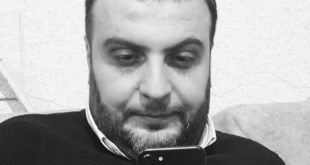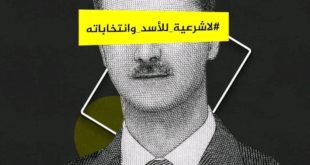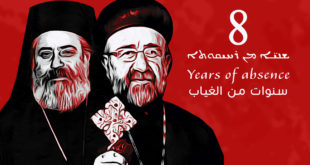ADO-World.org
DAMASCUS – As Syria marked six months since anti-regime protests erupted, opposition figures announced a list Thursday of people forming a "National Council," as protesters vowed to hit the streets again, undaunted by a brutal crackdown in which more than 2,600 people have died.
With 60 percent of the council’s 140 members living inside Syria, organisers released the names of only 72 of them for security reasons, council member Abdel Basset Sidah told journalists.
"After completing the first level of consultative meetings, groups of revolutionary youth, political movements and personalities, activists and technocrats decided to found the Syrian National Council," spokeswoman Basma Qadmani said.
Looking to Friday, the Muslim day of weekly prayer when demonstrations tend to be the heaviest, people were called to turn out under the slogan "we advance toward the fall of the regime."
"Six months. More than ever determined to (continue) the March 15 uprising," activists wrote on Facebook page The Syrian Revolution 2011, one of the main engines of the revolt.
"We have been massacred and we are more determined than ever; we have been thrown in prison and are more determined than ever," the page said. "The revolution has burst forth and will not stop until the regime is overthrown.
"A new generation has been born in Syria during the six months of the revolution, a generation that refuses to be servile and to prostrate itself before images of the tyrant," the page added.
The latest events follow another day of killings, with human rights activists saying security forces shot dead eight people, including a child, in a huge sweep on Wednesday against anti-regime protesters in northwestern Syria.
Armed with heavy machine guns, the forces cut off roads leading to the Jabal al-Zawiya villages of Baliun, Marayan, Ihsem, Al-Rami and Ibleen, setting up checkpoints and arresting several people, said the Britain-based Syrian Observatory for Human Rights.
Four people were killed and dozens more wounded in the operation, it said, and 100 people were arrested, including the family of Riad al-Assad, a soldier who defected.
Elsewhere, a child was killed when security forces opened fire to disperse a demonstration in the village of Janudiya near the Turkish border, and three people were shot dead in the central provinces of Hama and Homs, the Observatory said.
And a Red Crescent ambulance driver wounded recently as he was rescuing people in Homs died on Thursday, said the Local Coordination Committees (LCC), an opposition group with people on the ground.
In other violence, state news agency SANA reported a bus driver was ambushed in the city of Hama by an "armed terrorist group," while five soldiers and a guard shot dead by a similar group were buried in Aleppo and Homs.
And there were shootings and arrests in the Damascus suburbs of Harasta, Zabadani and Madaya, the LCC said.
Ibleen is the hometown of Lieutenant Colonel Hussein Harmush, the first military officer to publicly declare his desertion in early June in protest against the repression of the protest movement.
Harmush managed to leave Syria and had been leading the "Brigade of Free Officers," a group of dozens of officers who have deserted the regime.
According to opposition sources in Damascus, he was recently captured in Turkey by Syrian intelligence agents and brought back to Syria.
State television said it would broadcast the colonel’s "confession" at 1730 GMT on Thursday.
A week ago, three other military defectors were killed in Ibleen when security forces raided the home of the colonel’s brother, Mohammed, the Observatory said.
Mohammed Harmush was abducted during the raid and "his body was returned to his family," said the Observatory’s head, Rami Abdel Rahman.
The United Nations estimates the Syrian government crackdown on protests has killed 2,600, mostly civilians, since March, while rights groups say thousands of people have been arrested in the crackdown.
The Observatory’s Rami Abdel Rahman says more than 70,000 people have been arrested since the protests began, with more than 15,000 still in custody, with "schools and sports grounds turned in to detention and torture centres."
When it was formed on August 23, the National Council rejected foreign intervention or the rule of any one ethnic group and emphasised the national character of the "revolution."
The "coming together of all groups is a must despite all dangers. This delegation will bring different groups together," a statement said at the time.
Damascus has consistently maintained the protests are the work of "armed gangs," rejecting reports by Western embassies and human rights groups that the great majority of those killed have been unarmed civilians.
Source: Middle East Online
 Assyrian Democratic Organization ADO
Assyrian Democratic Organization ADO






